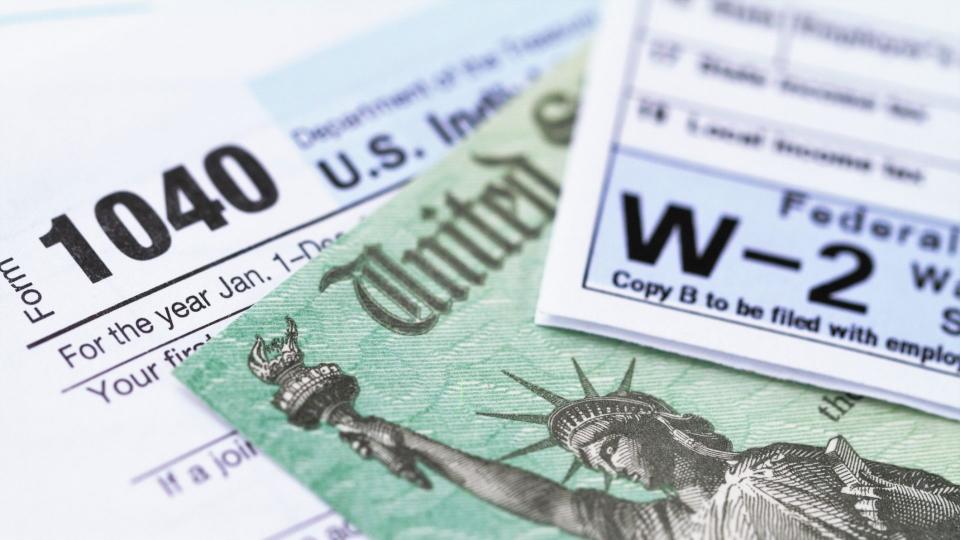Most Americans Can’t Pass This Tricky Finance Quiz — Can You?

Think you know your stuff when it comes to money, banking, and personal finance? You wouldn’t be the only one. Plenty of people are confident in their money smarts, but as it turns out, that confidence is often misplaced.
Find Out: What Is the GDP – and What Does It Have to Do With You?
GOBankingRates came up with the following six questions about the fundamentals of finance. Fewer than half of the people surveyed could answer five correctly, which is a B grade of 83 percent. Most couldn’t even get a passing grade because they answered only four or fewer questions correctly for a grade of 66 or less.
Now it’s your turn.
Here are the exact same six questions with the same possible answers. Some are multiple-choice, others are true and false. All deal in primary, nuts-and-bolts basics that affect the lives of average people every day.
Maybe you’re as sharp as you think you are — or maybe you’ll find it’s time to brush up on your financial fundamentals.
Take the quiz, see how you do.
Last updated: April 15, 2021

Question
What Are the 3 Major Credit Bureaus?
Capital One, Bank of America and JP Morgan
Deloitte, KPMG and Ernst & Young
Fannie Mae, Freddie Mac, and Sallie Mae
FICO, Moody’s, and Fitch
Transunion, Equifax, and Experian
Visa, MasterCard, American Express
Find Out: What Do Credit Reporting Agencies Do?

Answer
Transunion, Equifax and Experian
The three big credit bureaus gather financial information about individuals, maintain that information in databases, and package it into credit reports. Creditors, lenders, and sometimes even employers purchase those reports to learn about a person’s debts, payment histories, and other critical information.
Learn More: What Does the Fed Do, Anyway?

Question
True or false: A 401k refers to a tax credit for retirement.
Check Out: Understanding US Productivity and All the Ways It Affects You

Answer
False.
Although it’s not a tax credit, 401k plans certainly come with tax benefits. The most common and popular employer-based retirement plan in America, 401ks allow workers to contribute pre-tax earnings directly to these special accounts — often backed up by matching funds from their employers.
Read Next: How To Calculate Your Debt-to-Income Ratio

Question
Of the following, which describes what “APY” is?
Adjusted prices for inflation
Annual rate charged for borrowing or earned by an investment
Annual rate of return accounting for compound interest
Annualized principal payment amounts
Annuity payout per year
Automated payment
See: National Debt and Deficit — What Is It and How Does It Affect Me?

Answer
Annual rate of return accounting for compound interest.
APY stands for “annual percentage yield,” and it factors in both the interest rate and the compounding period on an investment.
Read: Understanding Interest Rates — How They Affect You and the US Market

Question
True or false: Income does not impact your credit score.
Check Out: What Is the Consumer Confidence Index and How Does It Affect Me?

Answer
True.
Your income will always play a role in how much money you can borrow, but it doesn’t factor into your creditworthiness. Lenders are concerned with things like your on-time payment history and outstanding debt, which have the biggest impact on your credit score.
Learn: What the Unemployment Rate Means for You and the Economy

Question
What does a CD offered by a bank stand for?
Capital deferment
Certificate of deposit
Collateral default
Collateralized discount
Commodity dividend
Credit dividend
Read: How Does the Exchange Rate Work and How Does It Affect Many Parts of Your Life?

Answer
Certificate of deposit
Banks issue CDs to customers looking for a safe place to park their cash for an extended period of time. In exchange for the deposit, banks pay them a modest interest rate.
See: Breaking Down the Basics of Cryptocurrency

Question
What’s the difference between a checking account and a savings account? Select all that apply.
Only savings accounts earn interest
A savings account can’t be used for automatic bill pay
Only checking accounts have overdraft fees
You can only transfer money from checking accounts to savings
Checking accounts are designed for regular use
Savings accounts are designed for investing long term
Hedging Your Bet? Everything You Need To Know About Hedge Funds

Answer
You can only transfer money from checking accounts to savings and savings accounts are designed for investing long term.
A checking account is your go-to daily spending account — it’s linked to your debit card and you can write checks from it. Savings accounts pay higher interest rates, but you can only make so many withdrawals per month because they’re meant to be safe havens for accumulating cash over time.
More From GOBankingRates
Money’s Most Influential: Where Do Americans Get Their Financial Advice?
‘Rich Dad Poor Dad’ Author Robert Kiyosaki: You Should Never Say ‘I Can’t Afford That’
This article originally appeared on GOBankingRates.com: Most Americans Can’t Pass This Tricky Finance Quiz — Can You?
